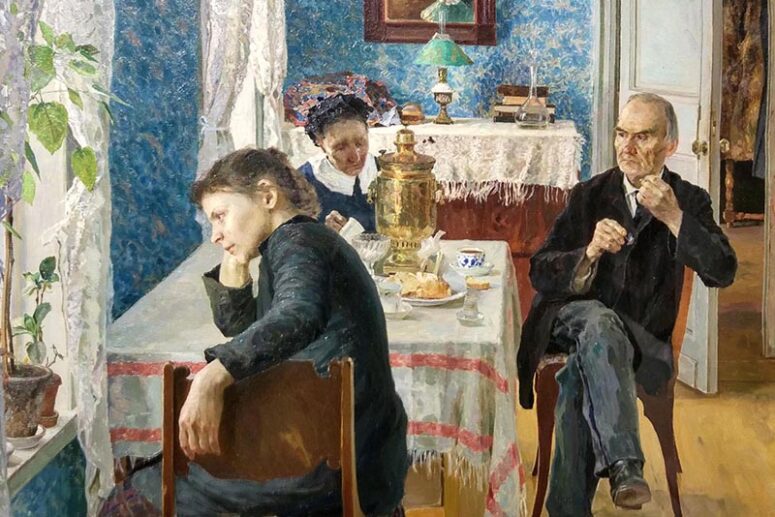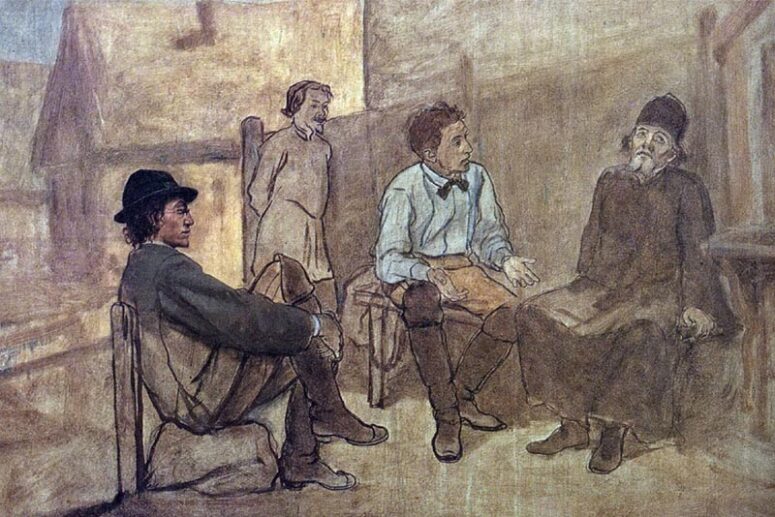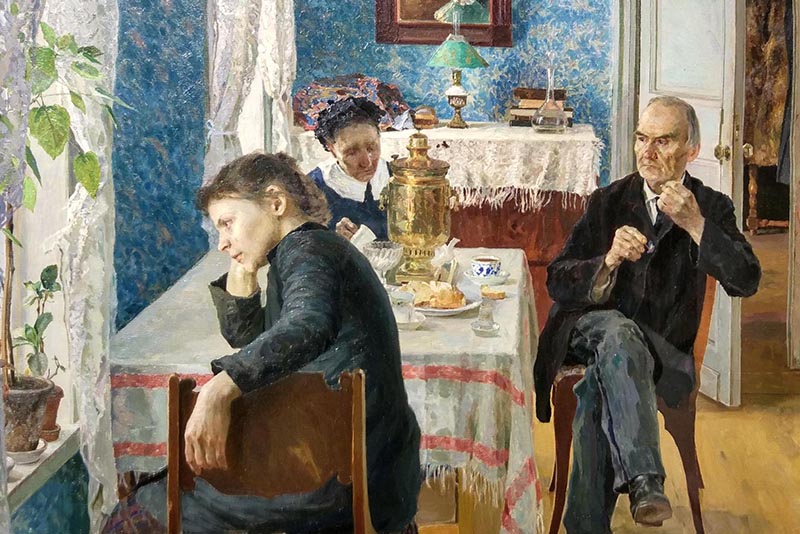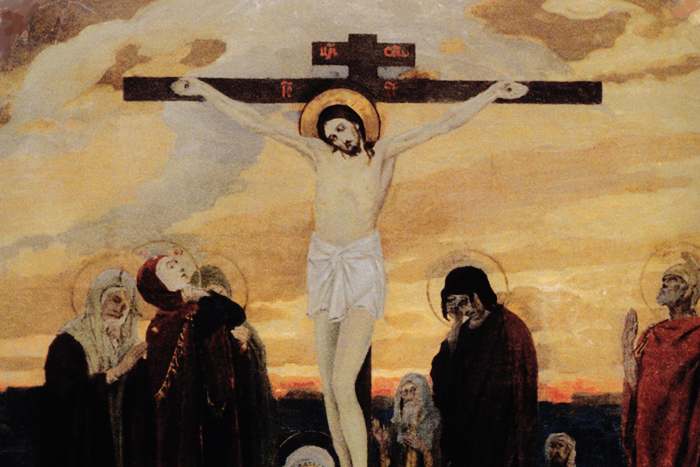
As long as we live in society, we are challenged to learn how to deal with the contradictions between our own desires and the many desires of others. Bishop Athanasios teaches how to do this from a Christian perspective:
Embrace a Christ-Centred Purpose
To achieve peace in our relationships, it’s essential to grasp the true purpose of our lives. Are we here to assert our dominance, satisfy only our desires, or to follow Christ? If we choose to live for Christ, we must address conflicts not through worldly tactics but with Christian virtues.
Consider Elder Paisios, a man of great presence and articulation, who opted for silence, compliance, and patience over forceful argumentation. We asked him, “Why do you act like this? Why can’t you settle things by using your strength of character?” His rationale was profound: “Do you expect for us to argue and fight; to lose peace, losing our very souls? But if we lose our souls, it is better for everything here to turn into ashes!”
This perspective shifts the focus from winning an argument to maintaining spiritual peace for the love of Christ. Embracing humility and patience, especially when we believe we are right, challenges us but ultimately aligns us with our Christian purpose.
Talk to Your Brother

Christ’s guidance in Matthew 18:15 emphasizes the importance of direct, compassionate dialogue when resolving conflicts: if someone wrongs you, discuss it privately first, then with witnesses if necessary, and if unresolved, entrust it to God.
This approach prevents misunderstandings that the devil might exploit to widen divisions. My own experience in the hermitage revealed how easily misconceptions form. I was still very young when one evening I saw a monk who was crying in church. When I asked him what was the problem, he said:
– My problem is with you! You don’t accept me, you don’t want me here.
As it turned out, that brother felt alienated due to my actions, which he misinterpreted, although they were quite innocent: I was amazed, while he started recounting some past events. Surprisingly, everything he mentioned had really taken place, but the devil prompted him to draw wrong conclusions.
For example, he mentioned me leaving a discussion with other fathers upon his arrival, which, on my part, was an attempt to end an unfruitful discussion, but he saw it as a dismissal of him. Similarly, he mentioned that when he wanted to learn how to ring church bells, he was offended because I found someone else to teach him while it was really due to my inadequacy, not reluctance to engage with him.
These incidents, misread as personal slights, underscore the importance of open dialogue to dispel false impressions and heal relationships. It took us years to build a relationship and heal this trauma that I didn’t even know was there.
Often, the devil amplifies our doubts, but direct communication can clarify intentions and mend bonds, as Christ teaches us. I often notice this in people’s confessions: just when you start to believe your thoughts, the devil reinforces them: “See, he was smiling, but when he saw you, he became serious and went in the opposite direction!” A thousand ideas will come up. That is why the Savior says, “Go and tell him.” If you speak to your brother humbly and simply, your misunderstanding is likely to be resolved.
Embracing True Forgiveness and Love
True divine justice often clashes with our worldly notions of fairness. I remember asking a guy who loved to fight why he behaved that way. He replied that he lost his temper when he saw injustice. It was worldly logic that drove him to beat up people, eventually landing him in prison.
This illustrates how a misguided “sense of justice” can lead us astray. It’s tempting to assert our righteousness, to corner and chastise someone for their wrongs, but does this truly align with Christ’s teachings?
In the Gospel, the Lord instructs us not merely to forgive but to love our enemies—truly love them, not as distant adversaries but with the affection and sacrifice we would show to our closest loved ones.
There is a great distance between forgiving and loving! We often talk about forgiveness while simultaneously maintaining a sense of disdain for the offender, as if thinking, “You have done so many bad things to me, but okay, may God forgive you! Go in peace, leave me alone. I won’t take revenge on you; that’s okay, because I forgive you.”
But that’s not enough. Loving one’s neighbour does not merely entail professing love, but rather, it requires loving one’s enemy as one would a dear friend or a spouse or child, with a readiness to sacrifice for them. This is what Christ is referring to, and this is the epitome of gospel perfection.

This radical love transforms conflicts, shifting the focus from others’ faults to our own spiritual state. Our challenge isn’t just to forgive but to transform our hearts to love genuinely and sacrificially, seeing everyone as an image of God.
Unfortunately, you and I are like barrels of vinegar. Wherever you place it, it remains vinegar. Put a bottle of vinegar in a bakery, it smells like vinegar. Some people, no matter what you do to them, will not be grateful or satisfied; they will not even say thank you. Meanwhile, it is very important to learn to be grateful: even if we do not feel it, let’s say “Thank you!” It is important not so much for the one who hears these words of gratitude, but for our own sake.
Seeing Beyond the Surface
Our irritations with others often reflect our own inner difficulties. When we say that there are people who are difficult to communicate with, it means that we ourselves are difficult.
Saints with the gift of clairvoyance, like Elder Paisios, could see both the outward actions and inner hearts of people. Despite recognizing their flaws, they always interacted with others in a manner that was simultaneously casual, warm, noble, serious, and reverent.
We often said to Elder Paisios: “Geronda, why do you speak to this man like that? Can’t you see what a terrible person and a deceiver he is? Can’t you see that he is mocking you?” He replied, “You perceive the outward appearance, but I see what is inside.” Discerning the contents of people’s souls, he corrected others with such profound love and care that it inspired change rather than resentment. People recognised this fatherly love and care.
This approach underscores a profound truth: if we shift our focus from external frustrations to internal growth, our external relationships will naturally improve. When we become too fixated on others’ faults, we miss the opportunity to cultivate our own spiritual maturity.
By working on our inner selves, we find that our external circumstances begin to reflect this peace, making our lives and interactions more joyful and fulfilling. Conversely, a lack of inner peace manifests as a frowning, downcast demeanour, regardless of external circumstances. Whatever position one may be elevated to, they may still find reasons to express ambivalence. Often, we add a “but” to any situation, suggesting a lack of satisfaction.
If we reform our inner selves, our external circumstances will similarly transform. However, if we fail to make these internal adjustments, even the most favourable conditions will seem arduous, tiresome, and unsatisfactory, as if not even angels could lighten the burden.
Translated by The Catalogue of Good Deeds
Source: https://www.miloserdie.ru/article/kak-dostich-ravnovesiya-v-otnosheniyah-s-drugimi-lyudmi-pyat-duhovnyh-sovetov/





Amen. Praying the Lord may give me spiritual discernment and wisdom.
This is a wonderful article. Thank you. I would hazard that Fr Ioann Krestiankin (whom I consider a saint) would affirm all that is written here.
Thanks also for the beautiful paintings from the Tretyakov Gallery, Moscow. I have visited there a couple of times and would like to spend more time there soaking up the artistry.
How do I reform my inner self? I am like the young monk but being 60 years old. I want to be like Elder Paisios.
At this time there is a lot of confusion and disturbance and confusion in our small family, living in 3 different places and as the grandmother I have to find the best attitude and words for each person. This article coming now is God’s providence, so thank you very much.